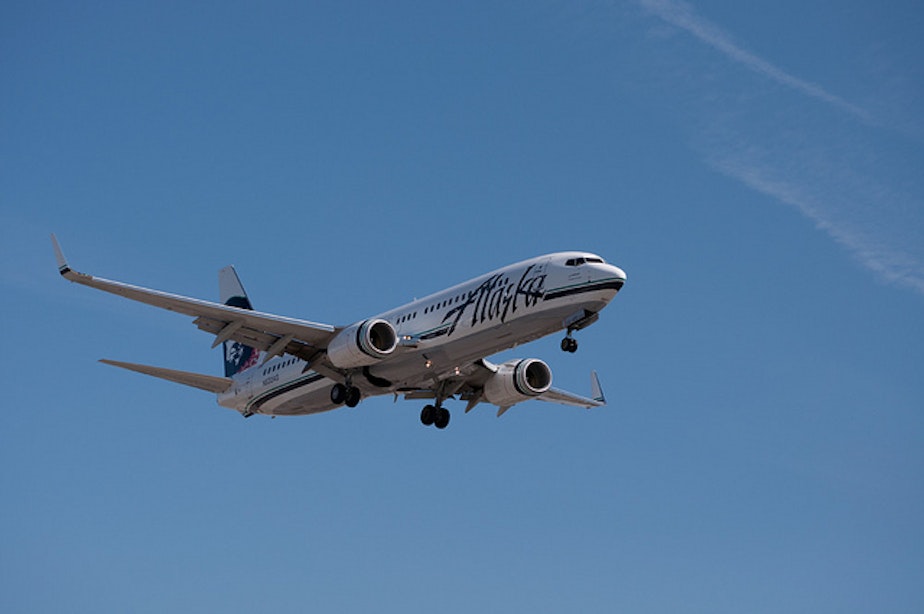Study: Alaska Airlines Pollutes Less Than Other US Airlines

Mile for mile, Seattle-based Alaska Airlines pollutes less than any other US airline. That's one of the findings of a new study of fuel efficiency in the aviation sector from a nonprofit group.
The average flight on Alaska Airlines wastes less fuel, and does less harm to the global climate, than a flight on any of 14 other air carriers according to the International Council on Clean Transportation.
Flights on Spirit, Hawaiian, Continental and Southwest airlines were also greener than the industry average. Allegiant and American Airlines had the dirtiest flights, burning about one-fourth more fuel than an Alaskan flight.
Keith Loveless is in charge of environmental initiatives at Alaska Airlines. He said the company has invested heavily in new planes.
“We have one of the youngest fleets in the airline industry,” he explained. “The newer the equipment, the more efficient it is.” Loveless also said that Alaska’s direct flights, as opposed to flying through hub airports, also save fuel and pollution.
Las Vegas-based Allegiant Air, which flies out of Bellingham International Airport, questioned the study’s conclusions.
“Basically, if you look at gallons per passenger, we are as efficient, if not more efficient than other low-cost carriers,” spokeswoman Jessica Wheeler wrote in an email to KUOW.
Allegiant operates one of the oldest fleets in the industry, according to the International Council on Clean Transportation study.
The entire airline industry has faced high jet fuel prices, but some carriers have done more than others to conserve fuel. Unlike cars and trucks, airplanes’ fuel efficiency is unregulated.
Study co-author Dan Rutherford said he was surprised at the wide variety in fuel efficiency and carbon emissions among airlines. But he said the plane is the most carbon-intensive mode of transport.
The Council on Clean Transportation is calling for policies to reduce the climate impacts of aviation, since market forces have not done so. The rapidly growing airline industry has volunteered to stabilize its emissions by the year 2050.

